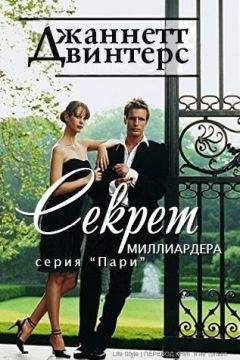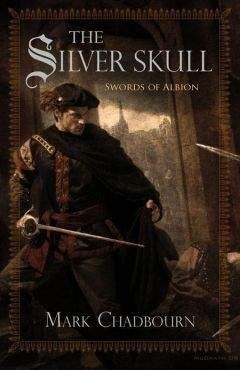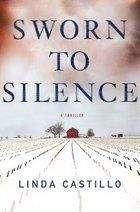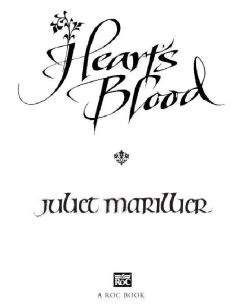Cybele's Secret - Juliet Marillier - Cybeles Secret
Скачивание начинается... Если скачивание не началось автоматически, пожалуйста нажмите на эту ссылку.
Жалоба
Напишите нам, и мы в срочном порядке примем меры.
Описание книги "Juliet Marillier - Cybeles Secret"
Описание и краткое содержание "Juliet Marillier - Cybeles Secret" читать бесплатно онлайн.
Stoyan looked down at his hands, still holding the little glass. He was avoiding my eye. “This matter is not only confidential, it is fraught with risk,” he said. “To pursue this artifact is to step amongst dangerous men, powerful men who will stop at nothing to achieve their ends. It seemed too soon to tell you what I knew.”
“You veil your true meaning, Stoyan,” Father said. “But I understand you. You waited until you were convinced we were trustworthy.”
“I intended no insult, Master Teodor. Salem bin Afazi had a high regard for you. He spoke of your integrity. But experience has made me cautious. It is a matter of profound regret to me that I let that caution slip at the time of Salem’s death. I made a grievous error.”
“I find it hard to believe that my old friend was killed over this artifact,” said Father. “Salem made it clear in his note to me that he did not intend to bid for the piece himself.”
“It is complicated, Master Teodor. Even if I had proof, there are reasons why I could not make my suspicions public. And there is no proof, only my instincts.”
“I hope you will tell us more in time, Stoyan. Meanwhile, please stay and let us hear what Paula has heard.”
I passed on my information as accurately as I could: the Armenian merchant, whose name had been mentioned in the message Salem bin Afazi had sent Father; the fact that the Portuguese had visited him twice, asking about antiquities. “I heard the man say something about a blue house,” I said. “The Armenian was staying there. Near the Arab Mosque, I think that was what he said. It’s up a lot of steps and apparently very hard to find.”
“Interesting.” Father set his glass down on the tray. “Your sharp ears have served us well, Paula. This is the first indication we’ve had that the item we seek is already here in Istanbul, and the seller with it. However, we cannot march over to this blue house and knock on the front door. We’d best send a discreet message. If we can locate the place.” He glanced at Stoyan.
“It sounds as if the pirate was prepared to knock on the door, Father,” I pointed out. “As a result, he has the advantage right now.”
“And has therefore put himself in the path of danger, where we, thus far, have avoided it. Stoyan, is it possible someone believed my old friend Salem was actually in possession of the item we are discussing? That he was done to death in a bungled attempt at robbery?”
“I cannot say,” Stoyan said. I could see on his face that the subject was raw and painful for him, even though he had raised it himself earlier. “The house of Salem bin Afazi is in the same quarter of the city as the mosque Kyria Paula mentioned, and he was close to home when…when it happened.” His voice fell to a murmur. “This artifact…a myriad of tales surrounds it, tales certain parties find deeply unsettling. For some time there have been rumors….” Hefell silent, clearly uncomfortable under two sets of shrewdly assessing eyes.
“Go on,” Father said.
“I accompanied Salem on many missions and into many houses and places of trade. I am not a man of learning, but I have learned how to listen. This piece, Cybele’s Gift, has a long history. For some time now, since before we heard it had been found and would be offered for sale, there have been stories circulating in the city. Stories that have made the imams uneasy.”
“I have wondered why Salem did not want to deal with Cybele’s Gift himself,” Father said. Now that Stoyan had said its name, there seemed no reason to hold it back, but he, too, spoke quietly. In a trading center such as this, there were ears everywhere. “It was exceptionally generous of him to allow me the opportunity to bid for it. There must be many collectors in Istanbul and the regions nearby who would pay handsomely for such an artifact. Salem could have made a big profit.”
Stoyan seemed about to speak, then thought better of it.
“What is it, Stoyan?” I asked him.
The strange eyes lifted to meet mine. “He would not have done so, kyria. Salem was a Muslim. He made his devotions daily; he lived his life in accordance with the principles of his faith. As a trader, he took risks. One such risk was to alert your father to the probable arrival of this rare piece in the city. To handle it himself would have been…ill advised.”
I was missing something. “I don’t understand,” I said.
“You mentioned the imams.” Father was several steps ahead of me. “Are you saying the Islamic religious leaders didn’t approve of the sale? Why should it trouble them? Cybele’s Gift may be a pagan artifact, but it’s extremely old. The cult it related to died out hundreds of years ago. Of course, there is a great deal of superstition attached to it, but…”
“There was a story.” Stoyan seemed reluctant to say more, but in the face of our expectant silence, he went on. “A rumor. That somehow the cult of Cybele had been revived, here in Istanbul. An ancient ritual, idolatrous, shocking, and violent. The idea sparked outrage amongst those in positions of influence at the mosques. Salem never found out if it was true.”
“But if it was,” I said, thinking out loud, “that would give other people reasons for wanting the piece, apart from pursuing it for profit or because it’s supposed to confer good fortune.”
“If there were such a cult, possession of Cybele’s Gift would strengthen it,” said Father. “A pagan revival of that kind must be seen as a threat by Islamic leaders. That’s if the story is true.”
“What do you know about Cybele’s Gift, Stoyan?” I asked him. “What did Salem tell you about it?”
“That it holds the last words of an ancient goddess. This Cybele, it is said her feet were like the roots of the deepest tree and her hair a nesting place for birds and insects of a thousand kinds. To touch this piece would be to touch the power of the earth itself.”
His words sent a shiver through me. This seemed a far more profound interpretation of the lore than the one we had heard, that the artifact bestowed good fortune on its owner and his descendants. “You sound as if you believe it,” I said, then regretted it, for Stoyan’s face closed up as if he were offended.
“Of course,” he said, “I am not an educated man.”
This seemed to be a sore point for him. I wondered what he would think if I told him my own story, in which eldritch forces of nature had played a significant part. “If someone really has revived the cult,” I said, “then I suppose it could be argued that the piece belongs with that person, not with a buyer like ours. On the other hand, the man who financed our trip is a genuine collector, scholarly and responsible. He would value the piece and look after it.”
“We could debate that issue at length and get nowhere,” Father said. “The fact is, as merchants, we are only ever middlemen, buying and selling on behalf of others, and while we spend time pondering motivations, our competitors are likely to seize the advantage in the deal. I’m not going to let that happen with Cybele’s Gift; there’s too much riding on our securing the piece. Stoyan, I will give you a message to take to this blue house. I won’t put anything in writing. Ask if there is an Armenian merchant in residence, and if the answer is yes, please let him know the trader Teodor of Braşov wishes to speak with him on a sensitive commercial matter. I can attend him at his convenience.”
Stoyan nodded, then glanced at me as if expecting that I would add my own contribution to the message.
“Go safely,” I said.
We were expecting a party of Venetian merchants before midday, to discuss arrangements for a future supply of hides and furs. Father was anxious to secure the deal on favorable terms, without too many conditions. In particular, he was keen to gain access to fine glassware. If the Venetians would ship our supplies as far as Istanbul, we would use the Stea de Mare or another vessel of similar size to get them to Constana, where the landward part of the journey would commence. Father and Costi had reliable carters and excellent guards. In addition, they understood the importance of making certain payments on the way, not just the taxes imposed by our Turkish overlords but unofficial sums that would ensure a shipment was not held up for months in a warehouse somewhere. It was all part of doing well in the competitive world of trading, and since I had unexpectedly found myself in the role of Father’s assistant, I was trying to learn it as fast as I could.
I had been luckier than most girls. My father had seen the value of educating me, and after several years under the tuition of our local priest, I had spent the last few winters staying with a friend of my aunt’s in Braşov, sharing the tutor she had employed for her sons. It was a highly unorthodox arrangement, but then, we were an unusual family. My sister Jena had already traveled south to Venice and Naples and north to Vienna with her husband on trading trips. My next sister, Iulia, had married a man whose family bred fine riding horses. While busy producing her children, Iulia had developed that sixth sense that allows a person to see which foal will develop into a top-quality mare or stallion. When we were younger, I had thought Iulia flighty. I’d believed she would grow up interested only in parties and finery. I knew now that she had something of Father’s business acumen. Her husband’s family seemed quite in awe of her.
My little sister, Stela, was only eleven. It was too early to say what she would turn her hand to as a grown-up woman, but she was certainly clever. She could be a scholar like me, or a merchant like Jena, or a wife, mother, and influential family adviser like Iulia. Or she might be the one out of us all who managed to find a way back to the Other Kingdom. Unlike me, Stela had never given up hope that she would one day do just that.
As for my eldest sister, Tatiana, whom we called Tati, we did not expect to see her again. She had fallen in love with a strange young man in a black coat and had gone where we could not reach her. Six years; it was a long time. Jena’s son, Nicolae, was three now, Iulia’s son a toddler and her daughter a bonny infant. Tati had missed so much. I wondered if they had children of their own, she and Sorrow, and what they were like.
Father and I sat out on the gallery drinking tea and preparing for the meeting with the Venetians. There was a constant stream of folk across the courtyard below us, like a smaller version of Istanbul’s colorful tide of humanity. Most of the occupants of this han were Genoese, but their customers came from everywhere. A party of Turkish officials in elaborately embroidered robes came in to speak with Giacomo and his partner. They were escorted by armed men wearing tall hats. Janissaries, Father told me—the Sultan’s military force, formidable in battle and faultlessly loyal. The han guard did not give his usual ringing challenge but let them pass without a word. They did not stay long.
The Sultan would not buy here, of course. Those who purchased goods on his behalf dealt almost exclusively with business enterprises that were within his own personal control. If there was a need to go beyond those, perhaps for a particularly specialized dyestuff or a rare manuscript, an emissary would be sent out to summon the merchant to the palace. Even the most respected traders would be admitted only to the outer court of that establishment. The Sultan and his household were surrounded by layer on layer of security and protected by rigid codes of protocol. That did not always keep them safe. In a hierarchy where any male of direct lineage could ascend the throne, covert killings were a fact of life. I had heard some terrible stories.
“Concentrate, Paula,” said Father. “I need you to be observant during this meeting. Watch their eyes and their expressions. This fellow Alonso di Parma is known to be manipulative. We need to be clear on the taxes; who pays the fee on entry of the goods to the harbor here and whether there’s an additional impost on transfer to our own ship for the journey north. If they pay that, we could offer to set it against the tax on the furs.”
“Yes, Father.” I had been distracted by the appearance of a female visitor to the han. A shapely, stylish woman of about thirty was going up the far steps now, probably to visit Maria or her friend Claudia, who was married to another Genoese trader. Her hair was covered by a very fine veil in dark green stuff with a row of tiny gold medallions sewn around the edge, framing her face. Under it she wore a long overdress in the Greek style, green and gold, with a flowing skirt beneath. The ensemble was complemented by gold slippers.
I glanced down at my own garb, finding it suddenly a little lacking. I had selected my outfit for decorum, not for style. I had on a dove-gray gown with some unobtrusive braiding at neck and wrists, and a blue headscarf. In short, I had dressed not as a single woman of seventeen but as my father’s assistant. For a moment or two, I allowed myself to want gold slippers and a gown that would make me beautiful.
The elegant lady had vanished into Maria’s quarters. Her guard, a big man in a caftan and turban, was standing out on the gallery waiting. I caught his eye without intending to, and he gave a slight nod. There was something odd about him—a fleshiness of the features, a certain manner. I could not quite place it.
“A eunuch,” said Father, noticing my curiosity. “You’ll see them from time to time in Istanbul, generally escorting dignitaries from the palace. Among the Sultan’s most trusted slaves are both black and white eunuchs. The former guard the harem, the latter see to the business of the household in general, including the education of the Sultan’s sons and those of his nobles. They are employees of high status. But slaves nonetheless.”
“Oh,” I said. “But he came with a lady who looked like a buyer. Greek, maybe.”
“I didn’t notice her. It would be unusual. Infidels—that is, foreigners, non-Muslims—rarely have the opportunity to employ such a person in their households. Don’t stare, Paula.”
Embarrassed, I brought my attention back to the matter at hand. We went through our figures once again. The Venetians were late. We discussed how we would handle things if they did not come. When we heard the guard at the han gate challenge someone, Father and I both rose to our feet, sure our visitors had arrived at last. But it was Stoyan who came into the courtyard; he strode to the steps and ascended them with his usual athletic speed. He hurried along the gallery to us. I observed that he was slightly out of breath; that was a first.
“Is something wrong?” Father asked him.
“No, Master Teodor. I have been to this blue house. The merchant invites you to come now, immediately. I made my way back as quickly as I could, knowing you viewed the matter as urgent.”
Father was not a man given to cursing, but he muttered something under his breath that sounded suspiciously like an oath. “I can’t go now,” he said. “I have traders coming to see me at any moment. If I put them off, I may lose an important deal.”
Stoyan was getting his breathing under better control. I suspected he had run all the way. “I am sorry, Master Teodor. At first, the steward of that household did not wish to hear my message. I thought it prudent to mention Salem bin Afazi. I was then admitted. I told the merchant you were Salem’s friend, all the way from Transylvania.”
Подписывайтесь на наши страницы в социальных сетях.
Будьте в курсе последних книжных новинок, комментируйте, обсуждайте. Мы ждём Вас!
Похожие книги на "Juliet Marillier - Cybeles Secret"
Книги похожие на "Juliet Marillier - Cybeles Secret" читать онлайн или скачать бесплатно полные версии.
Мы рекомендуем Вам зарегистрироваться либо войти на сайт под своим именем.
Отзывы о "Cybele's Secret - Juliet Marillier - Cybeles Secret"
Отзывы читателей о книге "Juliet Marillier - Cybeles Secret", комментарии и мнения людей о произведении.










